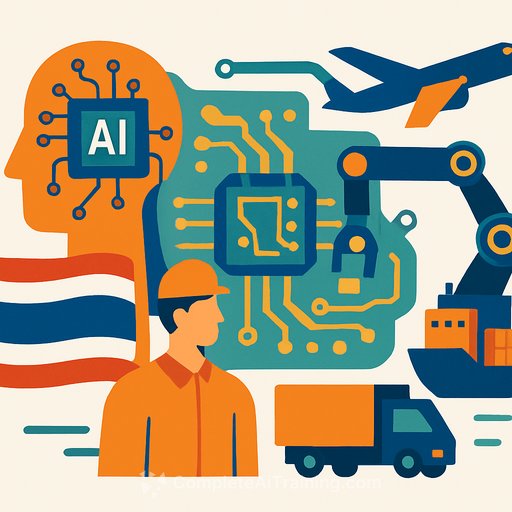Thailand's PCB Manufacturing Boom: Shifting the Global Supply Chain
In Ayutthaya, just 60 kilometers north of Bangkok, China’s Victory Giant Technology is expanding a new factory set to start production by late 2025. This move reflects a significant shift in the printed circuit board (PCB) supply chain—components essential for AI hardware.
As demand for AI grows, Thailand is emerging as a key manufacturing hub. The country attracts billions in investment as companies seek alternatives to China and Taiwan amid rising geopolitical tensions.
Geopolitical Shifts Driving Diversification
Trade tensions between the U.S. and China, along with supply chain disruptions from the pandemic, have pushed firms to diversify. Taiwanese leaders like Delta Electronics and Japan’s Ibiden have invested heavily, including Delta’s $500 million plant in Chonburi province.
Thailand offers a strategic location in Southeast Asia, a skilled workforce, and lower costs, making it an attractive alternative. This diversification supports AI infrastructure, as PCBs are critical for high-performance computing systems used in training AI models.
Factories in Thailand focus on producing high-layer count boards, which manage the complex interconnections needed for advanced GPUs.
Investment Boom and Local Economic Impact
In 2024, PCB projects approved by Thailand’s Board of Investment exceeded 100 billion baht ($3 billion). Companies like China’s Sihui Fuji have started facilities targeting automotive and consumer electronics sectors linked to AI.
These developments create thousands of jobs and encourage technology transfer. Ayutthaya’s industrial parks are busy with workers assembling multilayer boards using automated lines imported from Japan and Germany.
Challenges include a shortage of skilled labor and rising energy costs, which could affect growth. Industry observers have pointed out potential infrastructure strains despite strong momentum.
Technological Advancements in PCB Manufacturing
Thailand’s factories are integrating AI-driven automation to improve precision etching and quality control, reducing defects by up to 30%. At the Thailand Electronics Circuit Asia 2025 conference, innovations like 3D printing and AI optimization were highlighted for speeding up PCB design and prototyping.
Taiwan’s Dynamic Holding plans to begin volume production of AI server motherboards in Thailand by late 2025, with AI-related revenue expected to reach 20% by 2026. This reflects a broader trend of AI integration improving manufacturing efficiency.
Future Prospects and Global Implications
Thailand aims to become the largest PCB producer outside China, capturing around 10% of the global market by 2030. Industry experts emphasize the importance of PCBs as foundational components for AI technology, despite their low profile compared to chip fabs.
Environmental concerns are rising due to high water and chemical use in the industry. Some companies are adopting greener manufacturing practices to address this.
Thailand’s success depends on managing trade policies and developing talent. As one executive noted, “PCBs may not be sexy, but they’re the foundation of tomorrow’s tech.”
Challenges and Strategic Responses
Competition from Vietnam and Malaysia is increasing, prompting Thailand to improve incentives. The government is investing in vocational training to upskill 50,000 workers in AI and electronics by 2027.
Collaborations with companies like Taiwan’s Powerchip reflect broader semiconductor industry shifts. This PCB growth could boost Thailand’s role in global tech, supporting everything from autonomous vehicles to cloud computing.
With AI’s demand for hardware continuing to rise, Thailand’s factories are positioned to support the next phase of innovation, proving that essential components can drive significant economic change.
Your membership also unlocks:





